
The Sci-Fi Art of Paul Maitland
Can’t go to a con? How about revisiting on and getting turned on to the UKCM – and one of its artist members – at the same time.

Can’t go to a con? How about revisiting on and getting turned on to the UKCM – and one of its artist members – at the same time.

A new Dr. Seuss ms was found in a box in a closet, and now, with help from artist Andrew Joyner, we get to read it

For those of us who write fiction, he has countless wise and constructive advice to offer

The Lone Ranger Green Hornet comic is overall an entertaining read, very much in the spirit of its pulp fiction origins.
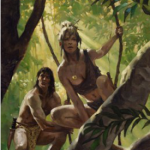
To have one’s heart and soul passed over for another can be a devastating thing.

The only book by Ursula Le Guin, outside the Earthsea series, which has received consistent attention from artists and illustrators is The Left Hand of Darkness.

The artists who have chosen “Supernova” as their topic, distinctly verge toward the trippy.

An inside look at the process of developing a cover for a self-published book

It’s that time of the year again: my annual tax return is due by the end of this week. Nuff said.

A profile of Amazing Stories’ go-to artist – Duncan Long.

Draw 21, an awesome (amazing!) art book is fund raising right now!

The Artful Collector explores the artliness of knick-knacks.

A look at Walter Velez’s art and current projects.
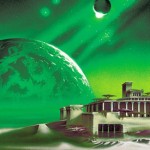
World building requires art AND science. Nina takes us through a primer.

Amazing Stories’ Art Director Duncan Long begins a weekly profile of the art of the fantastic!

As we grow older, we are forced to accept the fact that those people who helped to form our childhood are also getting older. We are made to understand that being influential does not make one immortal, at least not in a literal sense. And so, thousands of people the world over are slowly coming to terms with the fact that Hayao Miyazaki is truly, truly retiring this time.

A review of the art book: 1,100 Ideas By 100 Manga Artists
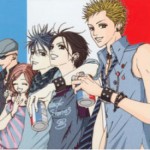
Morgana Santilli reflects on a year of posts and blogging. Happy Blogiversary!

An examination of the world of anime in its current state and with its current offerings.

Every artist is a reporter of life and truth; examining the similarities between art and writing.

Morgana Santilli talks about what makes RWBY a great animated series, and webseries.

The final installment of this year’s Ooky Spooky Animanga series focuses on the best scary animanga character costumes, and how to put them together.
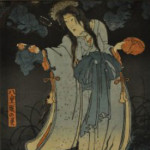
Every culture has its ghost stories. Here in the West, ours tend toward narratives depicting souls who died violent deaths and have returned to take revenge. Or perhaps we tell tales of those who have died too soon and only wish for eternal playmates. As I briefly mentioned in my post last week, the Japanese have a very rich and far-reaching pantheon of spooks. The majority of these ghosts and their stories grew out of the Edo period (1603-1867; thus why a show like Mononoke asserts itself as particularly Japanese horror), and ghost stories with a certain antiquated style to them, or an air of the past, are usually referred to as kaiden (mysterious or strange recited narrative), whereas more modern horror stories would simply be called hora (a Japanization of “horror”).

[Note: The following post contains some images that are visually disturbing. It is recommended that the reader use caution.] Do you like your comics with heavy inking? With a bit of body horror? With gruesome […]
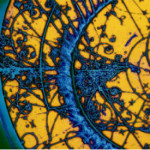
It is quite possible … that we will always learn more about human life and personality from novels than from scientific psychology —Naom Chomsky In the 1920s, physicist Niels Bohr struggled to re-imagine the structure […]

Space Art from the mind and hand of Raymond Cassel, space calendar cover artist!
Steve Davidson is the publisher of Amazing Stories.
Steve has been a passionate fan of science fiction since the mid-60s, before he even knew what it was called.

Recent Comments